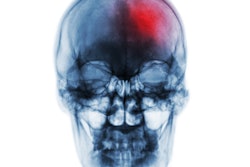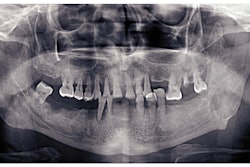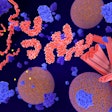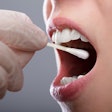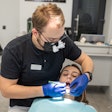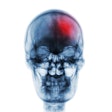
Poor occlusal support conditions may be independently and significantly correlated with erectile dysfunction (ED) in men, but the mechanisms behind the link remain unclear, according to a new study published on May 2 in the International Journal of Urology.
However, the number of remaining teeth and periodontal health status were not linked to ED, the authors wrote.
"Our results may be helpful to dentists for identifying patients with ED and give the chance of treatment to the patients," wrote the authors, led by Dr. Naoki Fujita, PhD, of the Hirosaki University Graduate School of Medicine in Japan.
Globally, the prevalence of ED is between 3% and 77%, according to the study's authors. Associations between ED and periodontal disease have been published in the literature, however, no study has explored a possible link between this condition and occlusal support status and the number of remaining teeth, according to the study.
To explore these possible relationships, a study was conducted with 400 men with a median age of 53. Using the International Index of Erectile Function (IIEF-5), 333 were classified as having ED and 67 were not determined to have impotence. The Eichner classification, a framework developed in the 1950s, was used to assess occlusal support, and the Community Periodontal Index (CPI) was used to evaluate gum health status. Univariable and multivariable analyses were conducted.
In univariable analysis, a significant association between ED and periodontal health status was observed, but statistical significance disappeared after adjusting for confounding variables, such as age and other systemic conditions like diabetes, the authors wrote.
In multivariable analyses after adjusting for confounding variables, such as age and other systemic diseases, like diabetes, poor occlusal support status was independently and significantly associated with ED (odds ratio [OR], 3.490; p = 0.042). Men's remaining number of teeth (OR, 0.907; p = 0.114) and CPI score (OR, 0.978; p = 0.864) were not significantly associated with ED, they wrote.
Nevertheless, the study had limitations, including that information about sexual activity, which may cause an underestimation of ED using the IIEF-5 was not gathered, they wrote.
"Moreover, our results may broaden our understanding of the association between oral health and ED and lead to a future interventional study," Fujita et al wrote.





